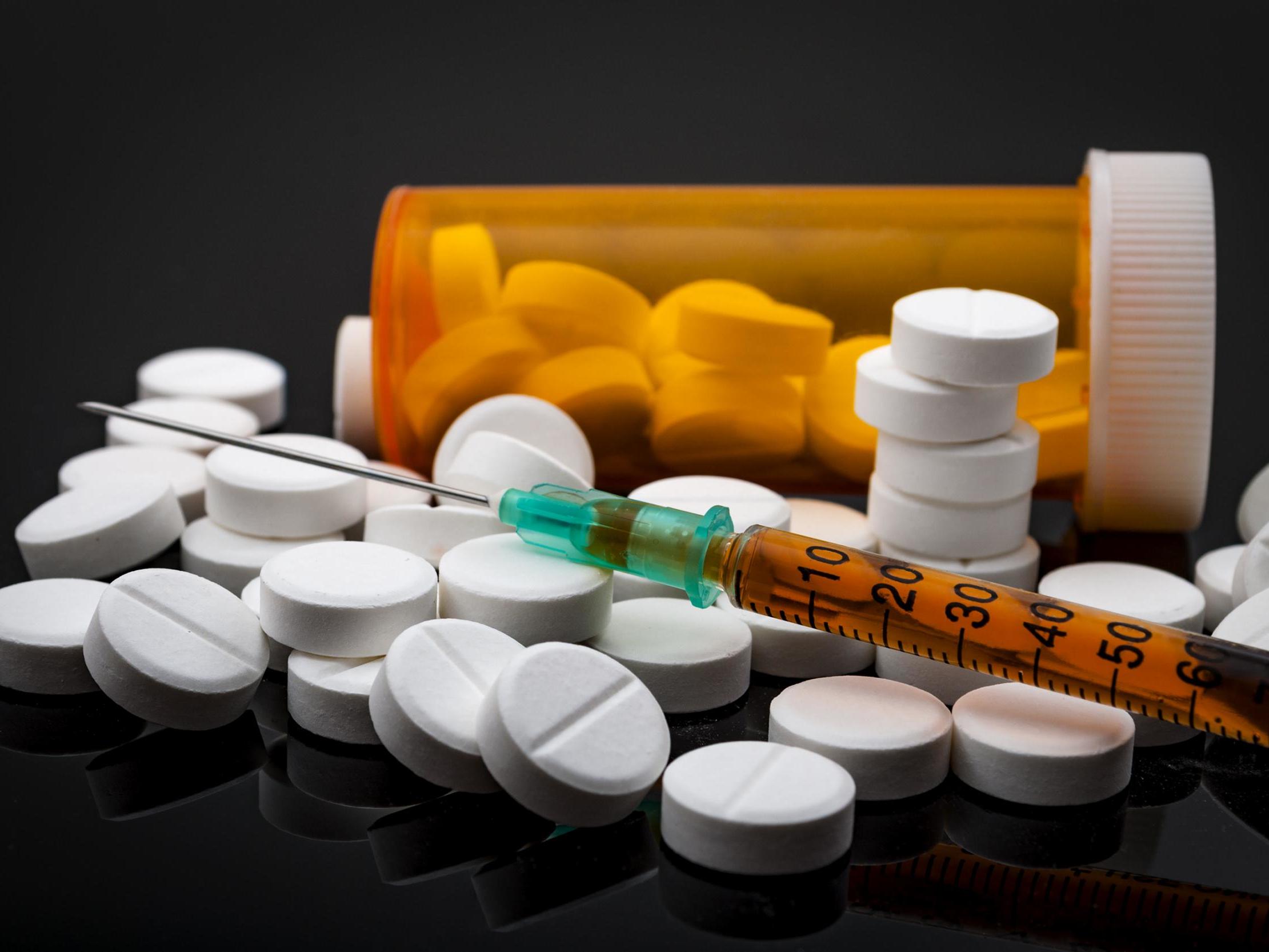Britain must get ahead of the coming drug crisis
Editorial: The sooner the NHS, charities, public health authorities and police get on with preparing themselves, the better

There are few things truly novel in the world of drug abuse, but the emergence of synthetic opioids being fraudulently marketed as genuine medicines is certainly a departure, and one that threatens a serious public health emergency.
As The Independent’s investigation reveals, the NHS, drug charities and the criminal justice system face what one expert in the field calls “a perfect storm”, with astonishingly strong synthetic opioids at the centre of the crisis. The deaths of almost 100 people in Britain are suspected to be linked to such synthetic opioids, with about half positively confirmed to be so.
Those involved in dealing with the consequences of this lethal trade expect a steep rise in fatalities. The increase in cases of anxiety and associated mental health conditions unfortunately creates an expanding market for fake tablets passed off as Valium and the like.
The factors coming together are individually familiar but combine to form a lethal threat to often-unwitting users – people, in other words, who may not be seeking out illicit drugs in the traditional manner, but perhaps merely seeking help for a mental-health issue which, for whatever reason, they’ve not been able to have treated via the National Health Service.
The internet and the dark web have opened up a huge number of informal and unlicensed channels for receiving such bogus medicines by post, and China provides a ready manufacturing base for them. In effect, synthetic opioid drugs which can be up to 1,000 times the strength of heroin are not only being supplied in increasing quantities in their own right but as an active ingredient in realistic-but-fake packs of oxycodone (OxyContin), diazepam (Valium) and alprazolam (Xanax).
The dangers are all too apparent. The unwary user can find themselves hooked. Those already addicted to analgesic prescription medicines can find their condition spiralling downwards uncontrollably, given the massively increased potency of the clandestine trade’s products. Most concerning of all, of course, is the enhanced risk of overdose, injury and death.
At the moment, the common opioid antidote, naloxone, administered by the emergency services, is still effective. However, there is an obvious danger that, because of their potency, these drugs – known collectively as nitazenes – will become much more resistant to the usual clinical treatments. The lethal new drugs have been detected in 20 samples across the UK since September, by users who thought they were illegally purchasing prescription drugs known as benzodiazepines. The problem is spreading.
In fact, Britain is already suffering a spike in drug-related deaths, which currently are at a 10-year high, with 4,907 recorded in England and Wales last year, and almost half of which involved an opiate. This emerging public health crisis demands the same type of response, albeit at a lower scale, as the most successful aspects of the actions taken during the Covid pandemic.
The public needs to be educated about the dangers of buying any kind of prescription medicines online – the possibility of adulteration with fatal consequences. Like any forgeries, they can be extremely difficult to distinguish from the real thing, so a constant flow of updated information is required to keep vulnerable people advised. Sadly, it is not enough simply to tell users to only use such medicines when provided by a prescription – though that obviously has to be part of the messaging. The aim, as with much drug abuse, is harm reduction within realistic parameters.
But that is not to say that nothing can be done by the police and customs officials working internationally to tackle the cross-border trade. Indeed, it should be a global priority, given that this is a trade that, if unchecked, can spread rapidly across the world.
Medical researchers also need to find antidotes to ever-more-powerful nitazenes as they emerge – and before it is too late. This also requires an urgent international response, in the manner that the search for a Covid vaccine did.
In the United States, there is a wealth of expertise and experience associated with the similar fentanyl phenomenon – albeit one where the drug is “marketed” and knowingly purchased as fentanyl itself (often adulterated in various degrees) rather than passed off as a legitimate pharmaceutical. Unhappy experience there has much to teach the authorities in Europe as they prepare for the inevitable invasion.
The “war on drugs” has always been something of a misnomer – for it is a war that, by its very nature, cannot be won. In some cases, with the least-damaging substances, the situation may be made worse by the futile effort to end the trade.
However, the sale and use of the most lethal substances can be suppressed, and where this proves too difficult, has to be dealt with via sound public health principles – dealing with and limiting the effects of an epidemic.
The sooner the NHS, charities, public health authorities and police get on with preparing themselves, the better. The lessons already emerging from the Covid inquiry highlight how a properly managed response can save many lives.






Join our commenting forum
Join thought-provoking conversations, follow other Independent readers and see their replies
Comments